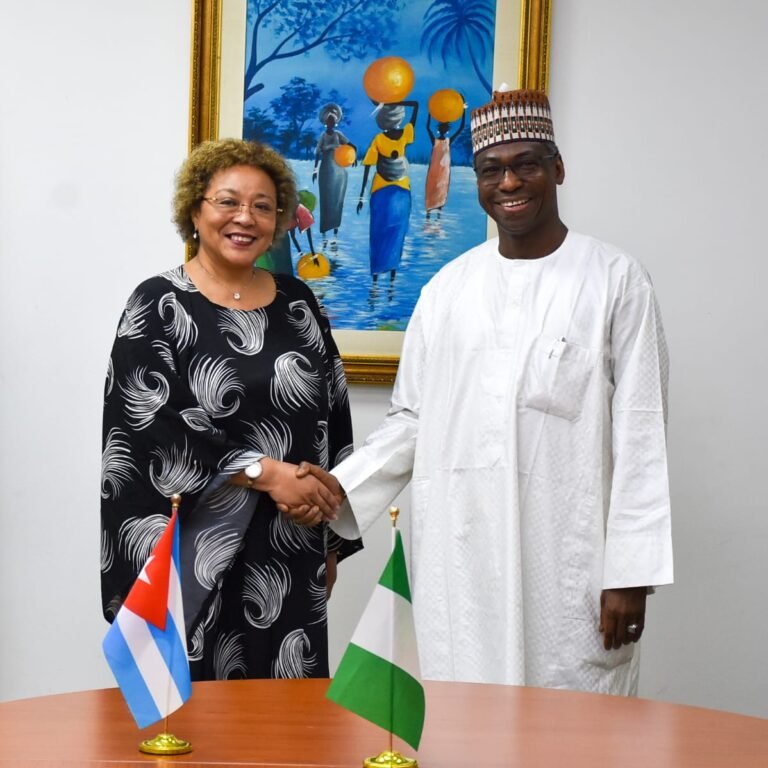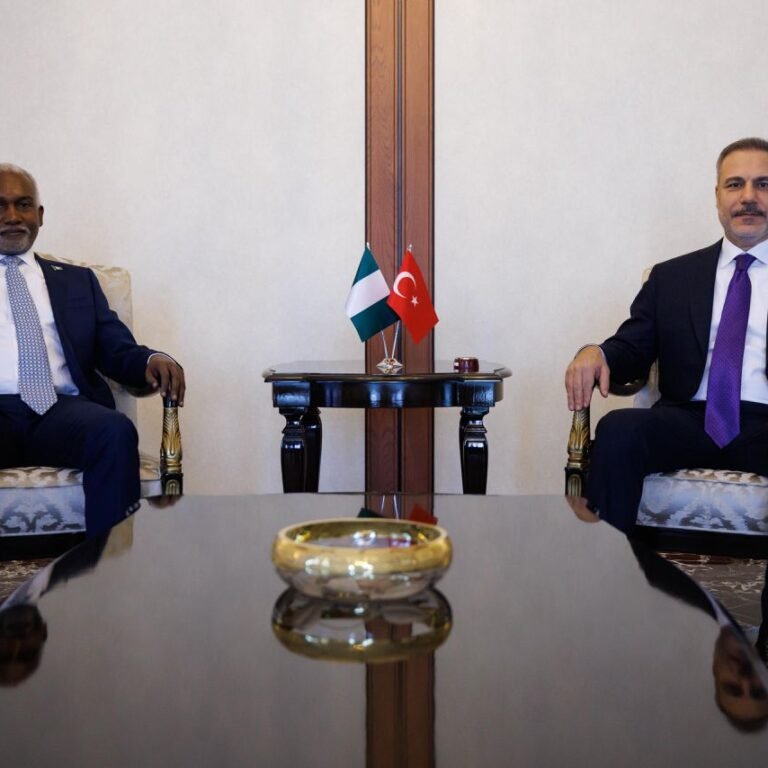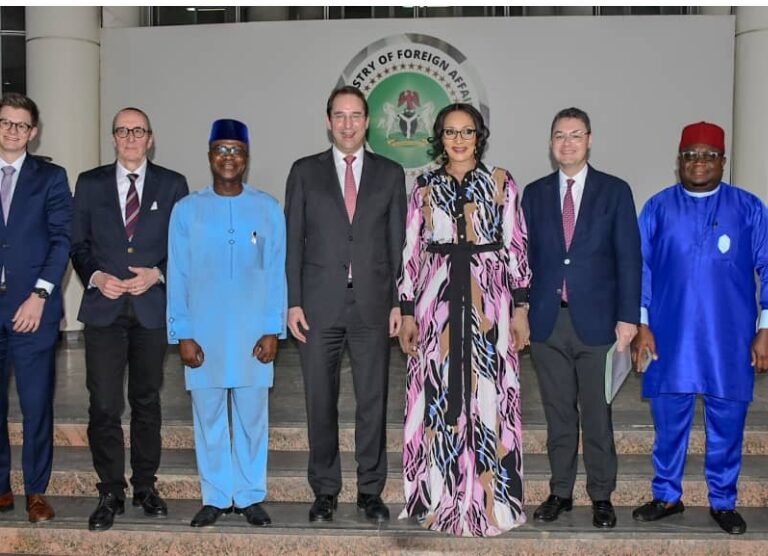
By Ameh Gabriel
Abuja, Nigeria – July 28, 2025
The Independent National Electoral Commission (INEC) has hosted a high-level post-election follow-up and needs assessment mission from the ECOWAS Network of Electoral Commissions (ECONEC), aimed at reviewing Nigeria’s progress on the recommendations arising from the 2023 general elections.
Leading the ECONEC delegation was the Chairperson of the National Elections Commission of Liberia, Mrs. Davidetta Browne-Lansanah, accompanied by the Deputy Chairman of the Electoral Commission of Ghana, Dr. Bossman Asare, and other international electoral experts supported by EISA, IDEA, and GIZ.

INEC Chairman, Prof. Mahmood Yakubu, welcomed the delegation, describing the visit as part of a consistent ECOWAS practice of deploying follow-up missions to assess how well election-related recommendations are implemented. He noted that this peer-review mechanism is vital to strengthening electoral democracy in the West African sub-region.
According to Prof. Yakubu, the ECOWAS Election Observation Mission (EOM) made 37 recommendations following Nigeria’s 2023 elections13 of which were directed at INEC, while the rest involved other stakeholders, including the National Assembly, Police, National Broadcasting Commission (NBC), National Identity Management Commission (NIMC), political parties, civil society, and media regulatory bodies.
“INEC has considered all the recommendations within its mandate that require administrative action and awaits legislative review for those requiring legal reform. Our responses, along with 142 additional reform proposals and our comprehensive 2023 General Election report, are publicly available on our website,” the INEC Chairman stated.
In response, Mrs. Davidetta Browne-Lansanah reaffirmed the purpose of the ECONEC mission as a peer-to-peer learning platform, not only to assess Nigeria’s implementation of the 2023 election recommendations but also to draw valuable lessons for other electoral bodies across West Africa.
“This joint follow-up mission allows us to reflect on the challenges INEC faced, how they were resolved, and how such solutions could strengthen our own institutions,” she said. “Challenges faced by one electoral body are often common across the region, and platforms like ECONEC offer us a rare opportunity to share experiences and strengthen our systems collectively.”
Mrs. Browne-Lansanah also expressed deep appreciation to INEC Nigeria, crediting the Commission’s material and technical support particularly in the establishment of an ICT center for the National Elections Commission in Liberia. Visibly emotional, she lauded INEC’s role in supporting electoral development not just in Nigeria but across the region.
“We are grateful to Professor Mahmood Yakubu and the INEC team. Your solidarity and material support helped shape our capacity in Liberia, and your leadership continues to inspire excellence in election management,” she added.
The meeting also featured discussions with other electoral stakeholders and development partners, reinforcing the spirit of collaboration and knowledge sharing as the region collectively works toward stronger, transparent, and credible elections.








